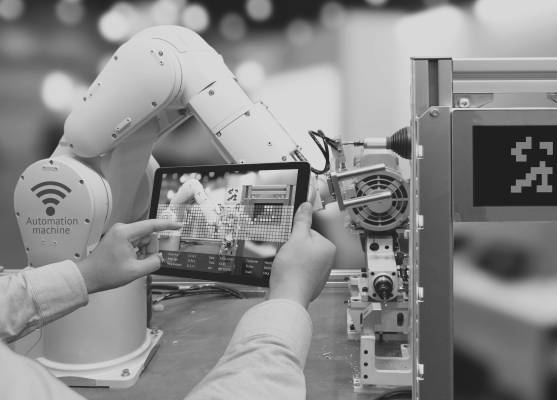Industry 4.0: New Partnership to Drive Manufacturing Transformation
A funding partnership between the Australian Mathematical Sciences Institute’s (AMSI) all-sector, all-discipline APR.Intern program and the Innovative Manufacturing Cooperative Research Centre (IMCRC) will put new technologies, business models and digitalisation in reach of Australian manufacturing industry.
Under the agreement, 23 skilled PhDs will be matched to manufacturing SMEs and larger companies to apply their specialist expertise to drive advanced and digital manufacturing and optimisation solutions.
Industry partners will attract a rebate under APR.Intern’s National Research Internship (NRIP) program on project costs after IMCRC funding support up to $13,000.
AMSI Director, Professor Tim Brown welcomed the partnership with the IMCRC as the Institute continues its commitment to enhance PhD preparedness to engage with industry.
“We are excited to open this powerful platform for Australian universities to complement specialist PhD training with industry experience while delivering manufacturing innovation solutions,” he said.
APR.Intern Director and Melbourne Enterprise Professor, Gary Hogan AM said the placements represented a positive step in realising objectives of the Australian Government’s $28.2 million Supporting more women in STEM careers: Australian Mathematical Sciences Institute (AMSI)—National Research Internship Program (NRIP).
“Contributing to the delivery and impact of NRIP, these placements bring specialised research skills to the manufacturing table, while also transforming university-industry research engagement,” he said.
With new technologies and smarter ways of working transforming the nature of manufacturing, IMCRC CEO and Managing Director, David Chuter, said the PhD internships play an essential role upskilling the sector to respond to challenges and opportunities ahead.
“The APR.Intern program will allow companies, especially SMEs, to cost-effectively tap into manufacturing talent with unique skillsets across automation, robotics, artificial intelligence, additive manufacturing and augmented reality,” he said.
“Over the course of three, four or five months, a PhD intern could work, for instance, within a company’s operations team to identify where automation could most benefit the organisation and assist with planning migration towards a digital manufacturing strategy.”

